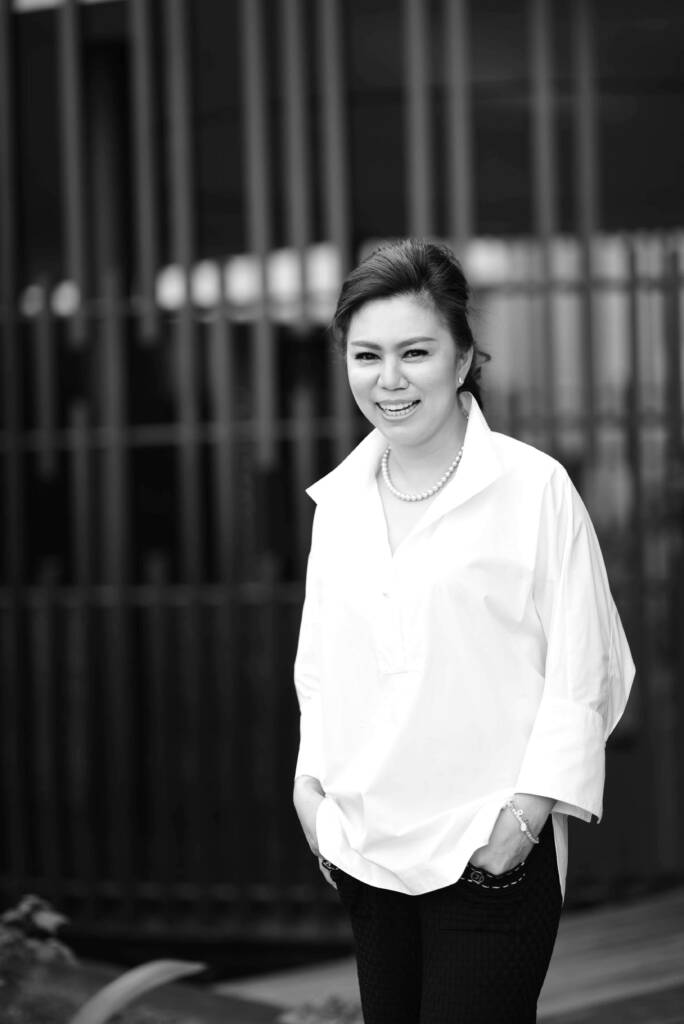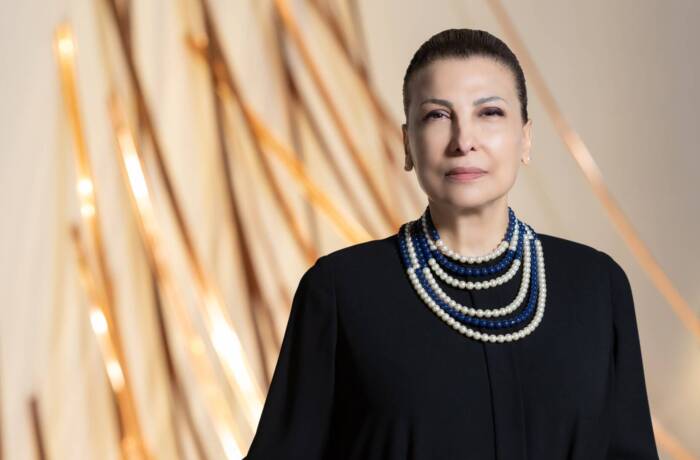
Veronica Colondam champions the field of social entrepreneurship in Indonesia with the establishment of YCAB Foundation in 1999
Veronica Colondam was the youngest ever recipient of the UN-Vienna Civil Society Award, a World Economic Forum Young Global Leader, and received accolades throughout her career including Globe Asia’s Most Powerful Women in Indonesia, Forbes’ one of 10 most inspiring women in Asia and one of Asia’s 48 Philanthropists, and one of UN’s Solution Makers; through YCAB Foundation she helms a social enterprise that aims to improve welfare through education and innovative financing, running programmes that have reached over 5 million underprivileged youth. She speaks with LUX Leaders & Philanthropists Editor, Samantha Welsh about creating a sustainable system that scales change.
LUX: How have your spiritual beliefs informed your leadership values?
Veronica Colondam: I established YCAB Foundation in 1999 when I was 26 years old. Yayasan Cinta Anak Bangsa Foundation (YCAB) means ‘Loving the Nation’s Children Foundation’) and reflected my love for all Indonesia’s children and my aspiration to nurture intelligent and innovative young minds. As a committed Christian, I believe we are called to be the Salt & Light of this world, to be a Good Samaritan, to love our neighbour and to help all those in need. My leadership values foster a culture that prioritises Integrity, Service, Empathy, Resilience, Vibrancy, and Excellence (iSERVE.)
LUX: Was there a catalytic ‘aha’ moment, when the scale of social injustice in Indonesia impelled you to set-up YCAB to drive change?
VC: For me it all started with education injustice. About three years after YCAB was founded, I realized that the school drop-out rate in Indonesia was very high. Millions of students did not complete their primary education. Further, the ASEAN Free Trade agreement 2010 put Indonesians at a competitive disadvantage as our schools did not offer teaching in tech and English. In response, we launched our first Rumah Belajar (Rumah = house, Belajar = learning to improve English and tech literacy. The ‘aha’ moment was when my 12-year-old daughter, Adelle took me as parent chaperone on her school community project and introduced me to the concept of microfinance. This catalysed our YCAB family intervention model.

YCAB Foundation is the founding and flagship organisation in the YCAB social enterprise group which bases its operations on a mutually reinforcing and financially sustainable social change model
LUX: What was the thinking behind that?
VC: We implement a family intervention model that empowers both mothers and children – ‘prosperous mothers smart kids’. We can transform low-income families and lift them sustainably out of poverty. We focus on the mothers because research shows the critical impact of a mother’s prosperity on the household. Economically-empowered earning mothers are in a better position to support their children’s education, reducing high school drop-out rates and lifting the family unit.
Follow LUX on instagram @luxthemagazine
LUX: Why is YCAB’s microfinance model sustainable?
VC: This comes down to the integration of financial support with educational advancement. We deploy capital to fund low-income women entrepreneurs ensuring their children’s education is a precondition for loan access. This dual focus on immediate financial aid and long-term educational goals fosters a cycle of empowerment. Additionally, YCAB’s transition into a self-reliant social enterprise, where profits from its ventures are reinvested into its mission, underpins its sustainability. The model’s success is evidenced by its recognition and supervision by the Indonesian Financial Services Authority, highlighting its impactful and sustainable approach to breaking the cycle of poverty and promoting community welfare

YCAB’s change model has one clear mission which is to improve welfare through education and innovative financing. YCAB aims to vitalize underprivileged youths to become self-reliant through economic empowerment and education, bringing them from mere subsistence to sustainable livelihood
LUX: Twenty five years on, how successful has YCAB been in mobilising resources throughout Asia?
VC: We mobilized more than $120M US to reach over five million low-income young people, together with hundreds of thousands of mothers. This is equivalent to a per capita increase from $2 to the threshold of an aspiring middle class at $8.
LUX: How did YCAB evolve from a not-for-profit to a social enterprise model?
VC: Honestly, I didn’t know anything about the concept of social enterprise back in 1999! In fact, the term “social enterprise” only began gaining recognition in Indonesia about 12-15 years ago. I initially founded YCAB with financial sustainability in mind and after the first year, I started-up a company as the first business unit of the foundation. Over time, we developed several business units to support the foundation’s mission and around 10 years’ later, after my INSEAD program, I realised we were operating under a social enterprise model.
LUX: Where does microfinance fit within social impact entrepreneurship?
VC: Microfinance operates as a business model and enables the poor to access capital. This embodies the essence of social entrepreneurship, where business and social impact are integrated into the model. We leverage our for-profit businesses to support the mission of YCAB, the foundation, so we operate our education program under the YCAB Foundation structure, and the economic empowerment program for mothers (or MFi) under YCAB Ventures, a company licensed by the Indonesian Securities and Exchange Commission (OJK) since 2015. Under the Ventures structure mandated by OJK, we engage in equity-like investments to support SMEs and have expanded into impact investment. This structure allows us to consolidate all our companies that support YCAB’s mission into a portfolio — from our original business units to new impact investments. The Ventures structure provides us with the flexibility to engage in financing (MFi), investments across all business units and new impact ventures, all while advancing our agenda of empowering families out of generational poverty towards a prosperous future.

YCAB believes in the power of education to improve welfare. To date, YCAB has brought impact five millions underprivileged youths and hundreds of thousands of low income families
LUX: YCAB’s partners rank among the world’s leading corporates; what is it about your approach to partnerships over 25 years that secures engagement at this level?
VC: We are commited not only to meet the needs of our beneficiaries but also to align closely with the objectives of our partners, some being the world’s leading corporations. One key aspect of our partnership strategy is our engagement with governments. Sustainable change requires collaboration across sectors, so partnering with governments allows us to leverage their resources, expertise, and influence to optimise our impact. Furthermore, our board members bring their expertise, networks, and insights to the table which enhances the value proposition for our partners, because partnerships are strategic, impactful, and mutually beneficial. Successful partnerships are built on a foundation of trust, collaboration and a shared commitment to driving positive change.
Read more: Zahida Fizza Kabir on why philanthropy needs programmes to achieve systemic change
LUX: Was there any time that you overcame a barrier that, in retrospect, catalysed a systemic solution to a particularly challenging social problem?
VC: The first standout catalytic moment was our shift in focus from preventing youth drug addiction to primary prevention through education and soft skill development, addressing the root causes of youth curiosity toward substance abuse. However, gaining access to schools, the focus of our target audience was a significant challenge. In 2002, in a pivotal moment for YCAB, I and our board member Professor Rofikoh Rockim met the former Minister of Education, Mr. Yahya Muhaimin. He granted us his influential letter of recommendation so we could access schools and campaign with authority. This shows the impact of personal connections, advocacy, and strategic partnerships that sparked transformative change and empowered communities throughout Indonesia.
The second catalytic moment was the covid pandemic. During lockdown, we could only help people who had basic literacy and smartphones to access e-support, including e-donations. We also used a WhatsApp-based chatbot. This revolutionised the financial literacy of mothers, the clients of our MFi program. The pandemic also opened the door to financing social goods using capital market products, such as mutual funds. To coincide with YCAB’s 25th Anniversary in August 2024, we will launch financial products that offer financial returns with social impact. This is gamechanging because with philanthropy in Indonesia, there is generally no tax deduction for donations aside from Islamic zakat giving which is regulated by a national zakat collection body. For non-religious non profits like YCAB, giving is not tax deductible so private corporate CSR donations are taken from EBITDA, contrary to public-listed companies.

YCAB is now exploring ways to implement the last link in its change model, that is, to create a sustainable system whereby students who graduate and become entrepreneurs or employed can pay it forward
LUX: What is impact exactly for a social impact entrepreneur and how can you measure it fully?
VC: At YCAB, we embed impact measurement into all our programs. With our microfinance initiative, for example, we conduct our “welfare survey” with our beneficiaries tracking our impact on their increased earnings, business expansion, and perhaps most significantly, the educational opportunities their children receive as a result of our interventions.
LUX: Finally, how do governments and financial institutions benefit by partnering with SIEs?
VC: We are not sitting behind our desks, we are out there in the heart of communities, listening, learning, and understanding their real needs. These grassroots connections mean our initiatives are genuine and address issues where they make impact, right where people live and breathe. We are always pushing boundaries, finding fresh ways to tackle age-old problems. When governments and financial institutions join forces with us, they are tapping into that spirit of innovation. When we innovate together, that vision becomes more than just a dream – it becomes our shared reality.








